Solar Energy, Solar Energy Basics, Solar Financing, Solar Technology
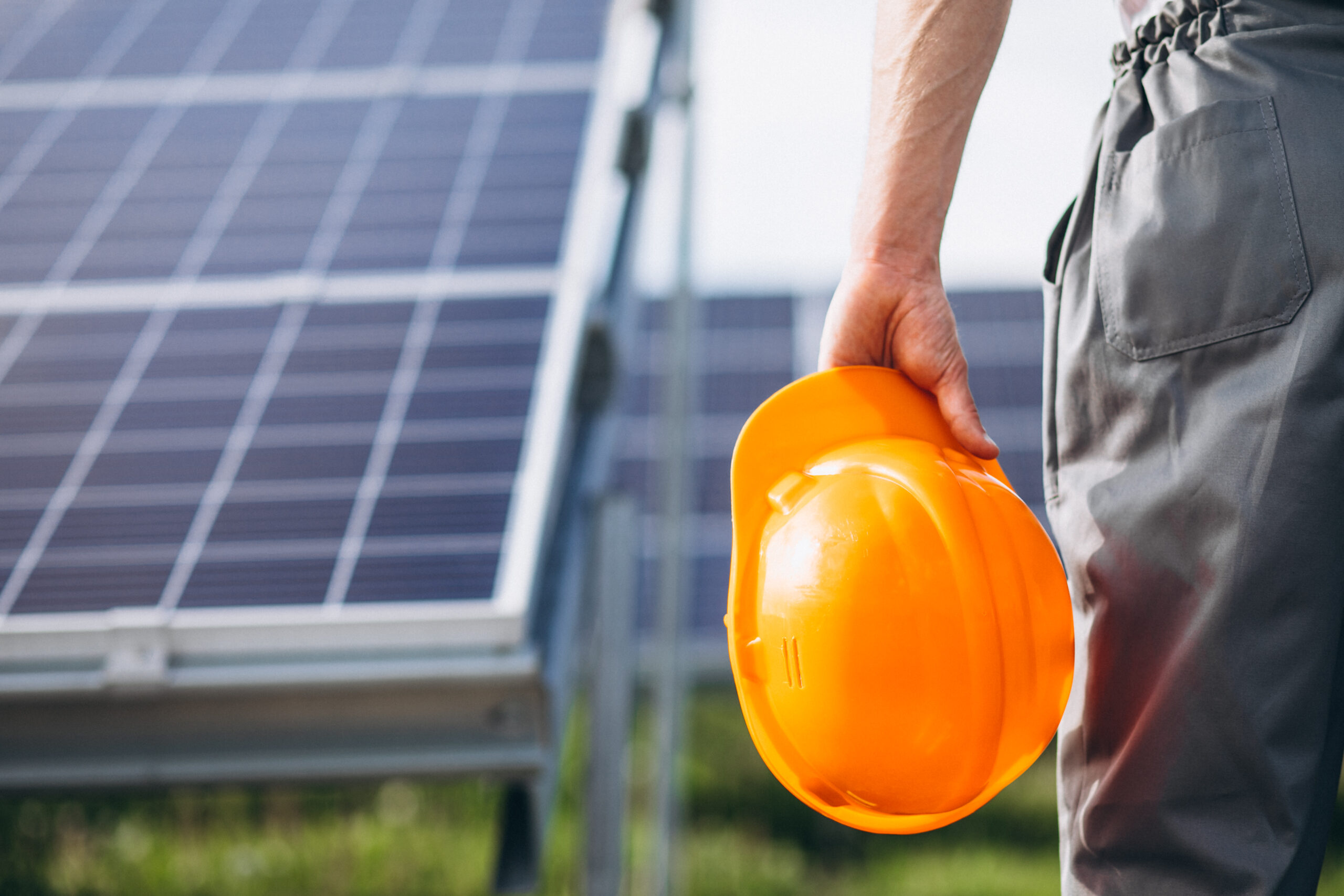
Investing in solar panels for your home or business has plenty of benefits like saving money, lowering your carbon footprint, and going green. These panels are expensive, but they do last up to two or even three decades, so you have plenty of time to return on your investment. However, a lot of people with solar panels aren’t aware (enough) of the importance of proper maintenance to ensure their longevity. Once installed, especially if you don’t lease but own the system, you’re in charge of the maintenance, cleaning, and repairs.
With this in mind, you probably have a lot of questions, including which is the best way to maintain the panels, how often to clean them, do you only use water or do you need some other products, etc. But, don’t worry: we’re here to shed light on everything you need to know about maintenance of solar panels to prevent possible accidents.
Similar to owning and caring for a car or an apartment, you should also monitor and care for the solar panels you have installed in your home or business. Despite the panels being made of sturdy materials and designed to withstand different weather conditions they’re still outside all the time and exposed to a variety of factors you can’t always control.
Knowing this, regular monitoring and adequate maintenance (cleaning and servicing) will help prevent damage or malfunctions and ease the identification of any problems early on. In this way, you can focus on resolving the problem and bring back the panels to full capacity production without interruptions.
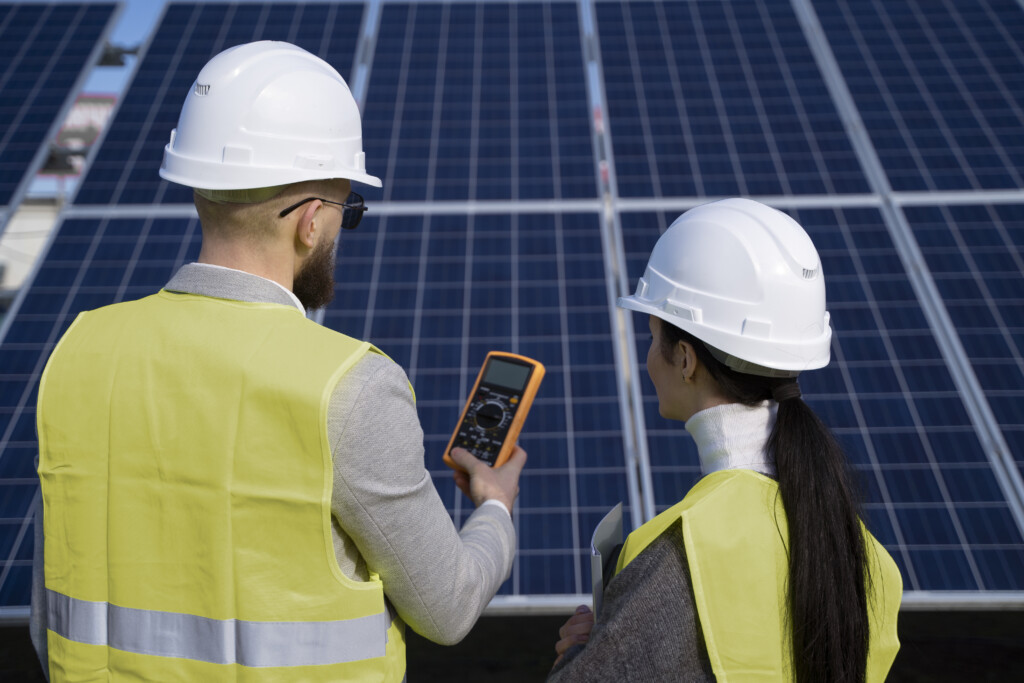
Generally speaking, solar panels don’t need complex or very frequent maintenance during their lifespan. As structures that are constructed of tempered glass, they’re designed to withstand harsh weather elements like winds, hail, snow, etc. Moreover, except for solar panels with tracking mounts, these systems don’t have parts that move so this significantly reduces the risk of additional issues.
As far as you’re concerned, maintaining the panels free of debris is what you need to focus on. This can be done with regular showering of the panels or by installing automatic sprinklers. When it comes to the production of energy and the performance of the panels, as well as potential problems, the monitoring system that has been installed will help you detect them. Oftentimes, if you spot a change in the production of energy via the program, you may identify and resolve problems easier. Below, check a few excellent maintenance tips for solar panels to keep them in the best possible condition:
Monitor the panels regularly: the inverters are working fine if the green light is flashing; if this isn’t the case, it may mean that you’re losing money because the panels aren’t functioning properly and compensating for your electricity use
Ensure the panels aren’t shadowed by a tree or some other object in close proximity to the panels. If this is the case, the panels will become inefficient because they produce energy by absorbing sunlight
Keep track of the panels’ daily or weekly performance. This can help you learn the amount of energy produced on a daily or weekly basis and make comparisons of the energy produced on sunny vs. cloudy days. Consult the provider of the panels and they’ll make sure you get the best system for monitoring the panels
Thanks to the apps or programs for monitoring solar panels, you will monitor the panels and you’ll be able to see the exact ways in which you’re contributing to a healthier planet and the amount of CO2 that’s emitted as well as the potential benefits of the feed-in tariff scheme
If you can’t do it yourself, call in the “big guns”: Automated Solar Panel Cleaners work similarly to sprinkler systems and can help you maintain the panels squeaky clean, even when you’re not able to do it yourself or when you’re busy with other chores.
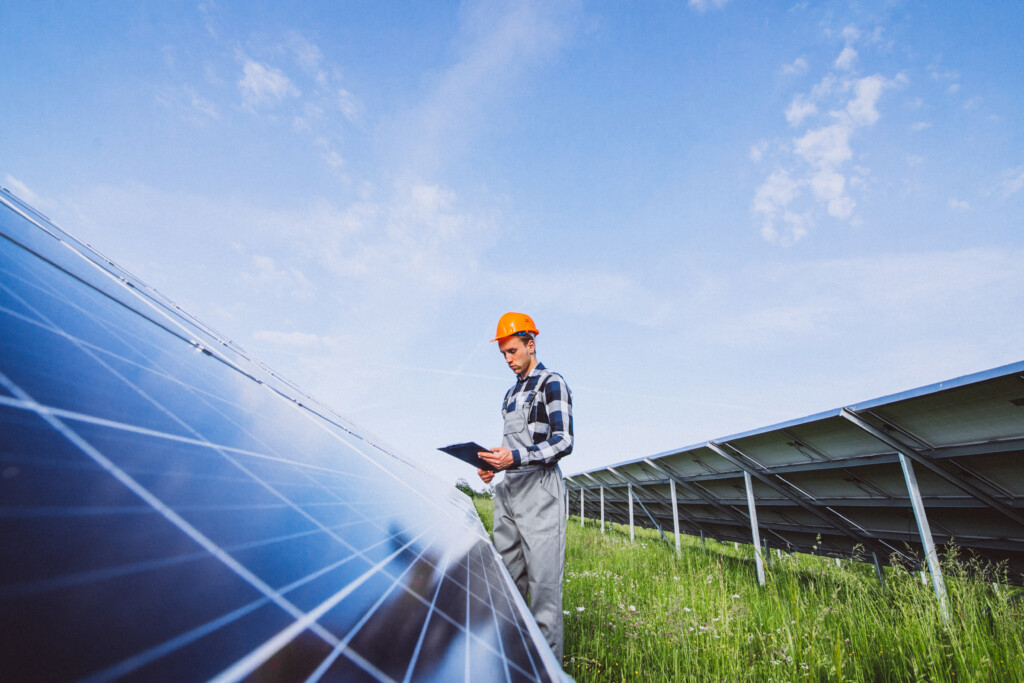
If you’re not cleaning your solar panels, you’re risking low energy production. And, science backs up this claim: according to university research, dirty solar panels may lose 50 percent of their efficiency when compared to a clean panel. Dirty panels are a common nuisance and a safety issue. This is because the debris and dirt may have a negative impact on the system’s energy production and result in more expenses for electricity and less renewable energy powering your home and appliances. Here are some of the main reasons why your panels may be dirty and not functioning optimally:
💦 Rainwater: Rainwater may enter the panels and lead to damage and rust near the metal connections because of corrosion that the moisture caused inside the panels’ cells.
🍃 Debris: Animal and plant debris may enter the cells and block the flow of electricity throughout the panel.
💨 Dust: A buildup of dust over the panels may happen if you don’t clean the panels regularly. This could also result in a blocked flow of electricity throughout the panels.
⚠️ Damage from water: If water enters the inside parts of the panel, it may contribute to corrosion and reduced production of electricity.
Cleaning the solar panels is an important element of solar panel maintenance. In the best-case scenario (it also depends on the type of panel), you may need to clean them every week or every month. To learn more about the best way to maintain your solar panels clean and efficient, consult the manufacturers.
Cleaning the panels with water is highly beneficial to remove dirt. Light hosing off with water from the ground is a great choice when the panels have light dust and dirt. This is a practical, effective, and simple method to keep the panels clean and better their performance. You can also opt for a solar panel cleaning kit, particularly if the panels have more debris or stubborn dirt and grime. This kit usually contains a wiper, biodegradable soap, and a brush with a longer handle. You should combine the soap with water inside a bucket and dip the brush into it and then gently wipe the panels using it.
Never use abrasive sponges and soaps for the cleaning of the panels because this could cause scratches in the glass. Make sure you don’t apply any harsh cleaning products to the solar panels because this may damage them and cause you to spend a lot on repairs. The best time to clean the panels is after rain: this is when they’re still wet or moist so rubbing away any debris is easier that way. Sometimes, you may need to clean the panels from the top. If this is the case and you’re climbing the roof, make sure you’re properly equipped and experienced with this step. Safety ropes and harnesses are essential in this case.
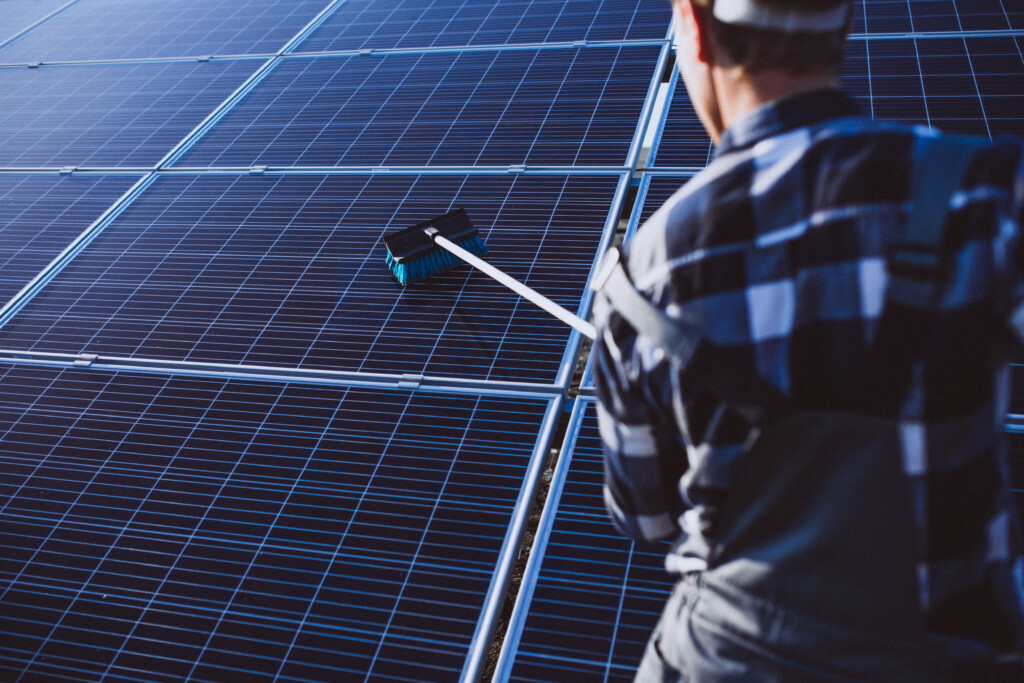
Bad weather is damaging to all roofs and solar panels are no exception despite their strength. Namely, solar panels are designed with tempered glass that’s capable of withstanding harsh weather, however, extreme weather conditions may cause damage. One of the riskiest weather conditions for solar panels is a hailstorm. Therefore, a lot of solar panel manufacturers design and test their panels to ensure the panels are hail-proof. But, the standards in the industry may differ during the testing so we can’t say that all types of panels will endure a hailstorm or a hurricane.
If you live in a state where hailstorms are common, like Nebraska, Colorado, or Wyoming, consult the brand to learn more information about the panels’ ability to withstand this weather condition to be certain before making a purchase. Below are also a couple of excellent tips which you can use to prevent damage from hailstorms if you live in some of these areas:
Do The Research: It’s always better, as the saying goes, to prevent than to cure. Driven by this, you should be aware of the frequency of hailstorms and their strength in the area where you live before you decide to have solar panels installed. This will help you pick the right type of panels, be prepared for the harsh weather, and know which extra protective measures need to be taken.
Use a Protective Cover: A layer of cover from methacrylate provides extra protection and increases the panels’ strength. Consult a professional about how to apply this layer optimally to avert any damage from improper setup. Another type of protective cover helps keep the panels safe from overheating which may occur during very strong sunshine and other types of extreme weather. These covers are usually made using Sunbrella marine fabrics and are praised for their strength and durability to shock, as well as to hailstorms and strong winds.
Have The Panels Installed So That The Hail Can Slide: The proper installation of the panels may save you money for repairs in the long run if you live in an area with hailstorms. A good decision in this case is to have the panels installed at the right angle so that the hail can slide off of them. This averts the hail from staying long enough to gather on the panels and prevents excessive weight and reduction in panel productivity.
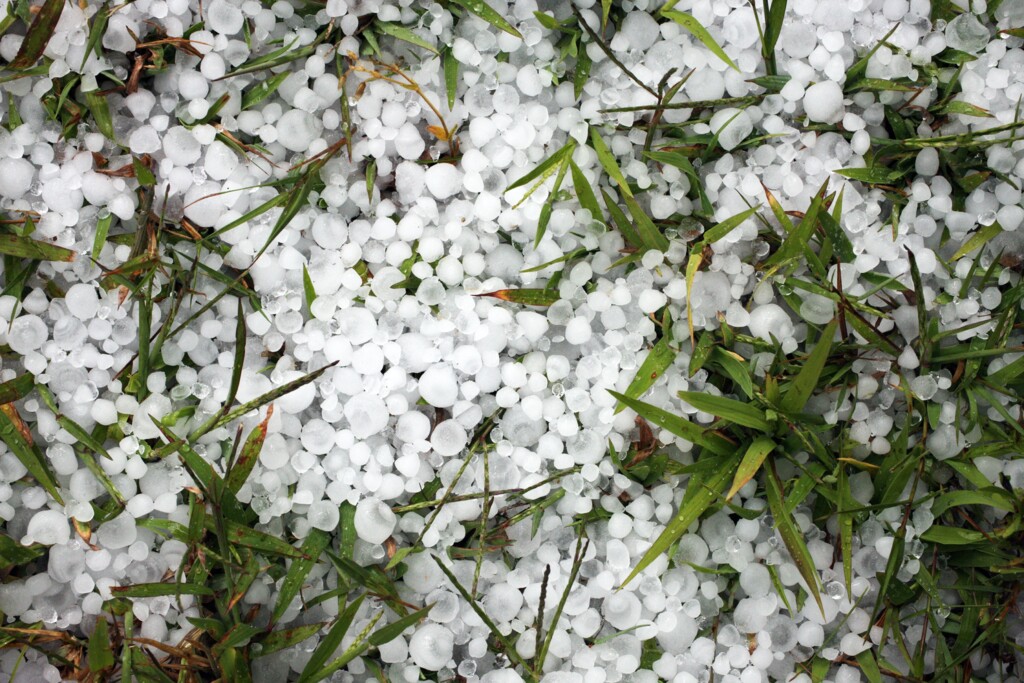
No matter how well you care for the solar panels, you will need to have them serviced by a professional at least once every two years to maximize their efficiency and ensure longevity and safety. Experts note that regular servicing and professional cleaning of the solar panels help identify and resolve possible issues in the beginning and maintain the system in optimal condition.
You can learn about the best maintenance program for your solar panels from the installer or retailer. The servicing and inspections must always be performed by an A-grade licensed electrician. It’s always best that the electrician has the right accreditations. These professionals work safely, know what they need to look for, and can diagnose and resolve solar system issues. If you consult an electrician for solar servicing, make sure they give you a full report on the checks that were made, as well as the findings and fixings that they’ve performed.
Also, don’t forget to take a look at the warranty because if the panels are still covered by the warranty and you have another company do the servicing, the warranty may no longer be valid. Servicing differs from cleaning because it includes electrical tests, visual inspections for proper cabling and equipment functioning, etc. The cleaning can often be done by the owners of the panels themselves whereas the servicing must always be performed by professionals.
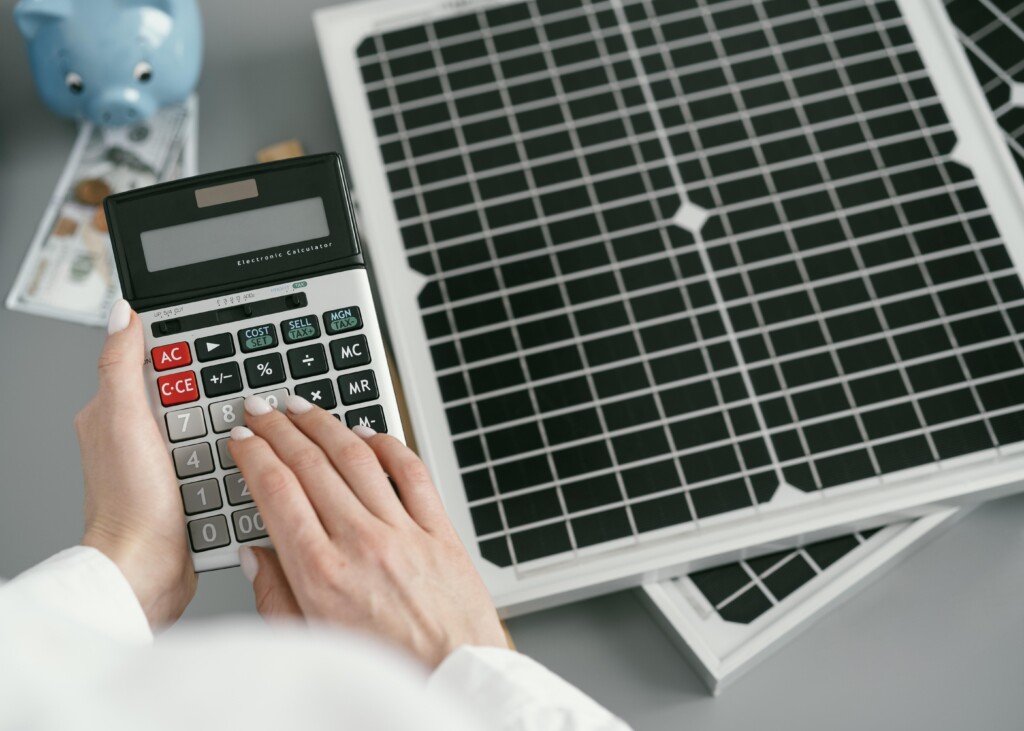
Considering that a solar panel is a big investment, solar panel insurance may be a worthy option to take into consideration. The solar system is valuable so making sure you have backup in case of damage, theft, and other unplanned circumstances goes without saying. With the proper solar panel insurance, you can optimize the care and maintenance of the solar system and cover potential malfunctions and damage.
Now that we’ve determined that solar panel insurance is a worthy option to consider, which type of package should you choose? How to know which one is the best option for your solar panels? To help answer these questions, check out some of the most common types of insurance available:
Commercial Insurance For Solar Systems: This type of insurance is designed for businesses. The companies which offer this type of insurance also offer insurance for homeowners. Solar commercial insurance will cover anything that’s involved in running a business, including the panels. It may also cover damage and theft of the panels.
A Solar Panel Clause In A Homeowners Insurance: Homeowner’s insurance is a common kind of insurance that tends to cover everything in your home, from the kitchen to the TV. Many types of insurance also offer the chance to add a clause for the solar system and this is a popular method to insure solar systems. Doing this will increase the premium of the insurance, but this cost will ensure the panels are covered against harsh weather, breakage, theft, etc.
Solar Insurance: Solar insurance is a specific type of insurance that covers anything that has to do with the solar system. Many companies that sell home insurance also offer this type of insurance, as well as some companies that sell and install solar panels.
The amount of money you will have to spend to insure the panels depends on numerous factors like whether they’re mounted on the roof or set on the ground or whether you need to insure a commercial or a residential system. When creating the policy, the providers of insurance will consider the cost of replacing the panels in case they’re damaged and the added value of your home if you choose homeowner insurance. And, commercial insurance is often defined on an individual basis while for residential options, the solar system is usually added to your home insurance.
If you don’t have homeowner insurance but wish to insure the panels only, you can opt for individual solar insurance. According to data provided by Insuranks, the cost of commercial solar panel insurance for general liability coverage of $1 million is $27 monthly or $324 yearly on average. On the other hand, for property coverage of the panels, the average cost is $417 per month or $5,004 every year.
Solar panels are a major investment so knowing how to maintain them in good shape is pivotal for their performance, lifespan, and durability. Although these panels are designed with strength and durability in mind, they’re not all mighty. In fact, solar panels need to be cleaned on a regular basis to remove debris and dust that could prevent them from working optimally and producing energy. Hosing off the panels with water is a highly recommendable practice and each solar panel owner is encouraged to do it according to the manufacturer’s recommendations.
Also, if you live in areas where hailstorms are a common occurrence, it’s vital to take the necessary precautionary measures to protect the panels from potential damage. Another option to protect your investment is to consider solar insurance, either commercial or residential. Professional cleaning of solar panels is also available and it’s a great choice to handle the panels with proper care. Servicing solar panels is something that only professionals can perform and it’s another vital element of solar panel maintenance. The procedures done by the experts ensure any potential faults are caught early on and resolved as soon as possible.
Panels should be serviced by a licensed electrician at least once every two years. Servicing includes electrical tests and visual inspections. Considering the investment in solar panels, insurance (commercial, homeowner’s clause, or specific solar insurance) can be a good idea to protect against damages and other issues.
Despite their strength, extreme weather like hailstorms can damage solar panels. It’s important to:
▫️ Research the frequency of such weather conditions in your area before installation.
▫️ Consider using protective covers.
▫️ Install panels at an angle to allow hail to slide off.
Stay a while and read more posts like this
In recent years, Europe has witnessed a remarkable surge in the adoption of solar panels, marking a pivotal shift towards renewable energy. Data from the...
Renewable Energy, Solar Energy, Solar Energy Basics, Solar Technology
“Unlock the Truth: Get the Facts on Solar Energy!” Introduction Solar energy is becoming increasingly popular as a renewable energy source, but there are...
Imagine a world where you’re able to cut your monthly energy expenditure substantially. A reality where your home isn’t reliant on finite,...